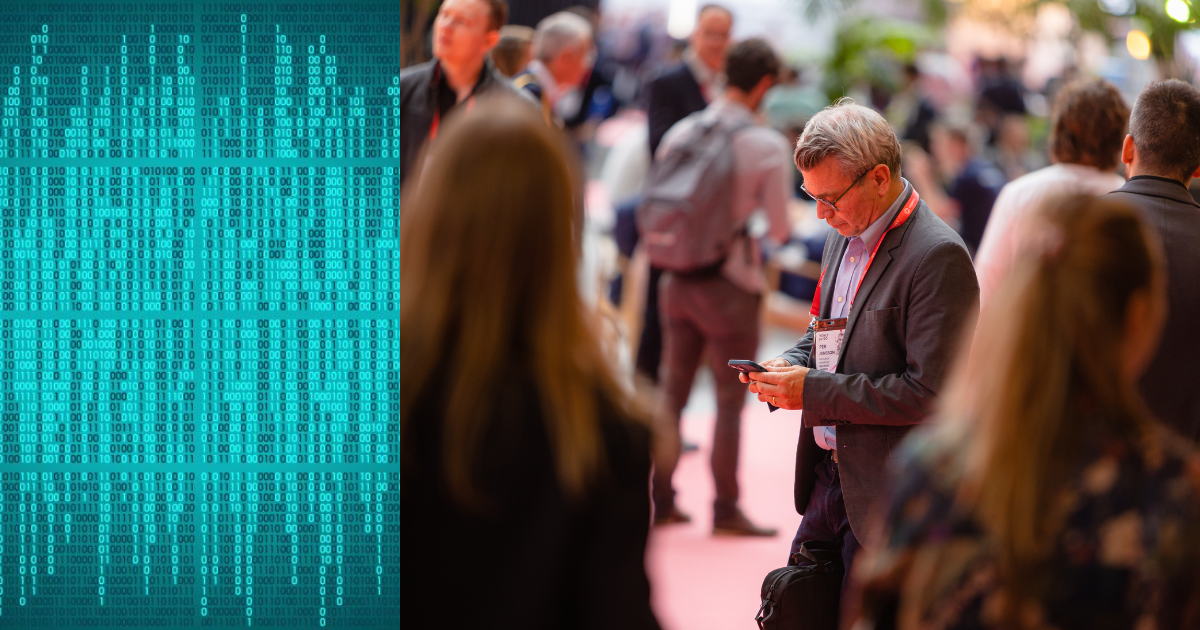After a cautious recovery in 2022 and with good prospects for the coming period, we can finally dare say it out loud: events are back! And while we’ve placed a great deal of emphasis on online meetings and hybrid formats over recent years, that was primarily out of sheer necessity. Now we can all agree on one thing: nothing is as effective, practical and, crucially, fun as physical events.
Yes, fun! If you look at what we at the RAI missed most in the recent COVID years, it was those chance encounters, good conversations spontaneously joined by others, having a good laugh together, listening to stories and more. By enabling us to maintain relationships and forge new friendships, events can feel like coming home.
And that’s the general sentiment right now, that we’ve arrived home after a very eventful journey. It’s a great time for our Market Researcher Sanne Jolles to look back on what’s happened and see which trends will help us to (again) make trends future-proof. With many trend reports and state-of-the-industry articles in the back of our mind and a little help from technology. Technology? Indeed!
Now that almost everyone is writing that AI (artificial intelligence) is one of the major trends, including in the event industry, it seemed sensible to ask AI what the trends actually are – via ChatGPT from chat.openai. com. So I asked the following question: “What are the trends in the meeting industry for 2023?” The result was a nicely written article with event trends plus the disclaimer that information had only been collected up until 2021. A perfect starting point for an exploration. Where are we coming from and what are the new challenges we face? A look into the future based on AI.
"Continued shift towards virtual and hybrid events: The pandemic has accelerated the shift towards virtual and hybrid events, and it is likely that this trend will continue in 2023. Organizers are likely to explore more ways to create engaging and interactive virtual experiences and may find more ways to incorporate virtual and in-person elements into the same event.”
The shift from physical to digital and back is something we’ve all experienced. The good thing is we’ve learned that a 365 community which gathers partly online and partly in person actually works. We increasingly consider the ROI of visitors and exhibitors and use that to shape platforms, events and exhibitions. The formats we previously adhered to quite strictly are no longer so sacred. And who knows, maybe we’ll see new formats created in which all stakeholders are the basis. Online, on site or both: we will shape it together. In Metaverse? Perhaps.
"Increased use of technology: As technology continues to advance, events will likely become more immersive and interactive, with a greater use of VR, AR and other technologies to create unique and memorable experiences."
Yes, event tech will always continue to advance, following general developments. We experiment with opportunities in Metaverse, contactless services, gamification, apps, AI, engagement, real-time translations, immersive experiences, data driven sessions – both format and content will improve when the right technology is used at the right time. And we will enhance our implementation: by using technology based on needs, not simply because it can. On the other hand, people increasingly expect event venues to facilitate everything and extend the possibilities.
"Emphasis on sustainability: The industry is likely to continue to focus on sustainability and ‘green’ practices such as reducing waste, using renewable energy and promoting environmentally friendly event materials."
Sustainability will remain an aspect found in all facets within the PPP of People, Planet and Profit. We’re looking at the climate-neutral or regenerative organisation of events, considering the sustainable reuse of materials and use local products, and zero waste. But we’re also including issues such as diversity and inclusivity, both in front of and behind the scenes. We aim to consciously create an environment where everyone feels safe and at home. We’re also working on the sustainability of events themselves, enabling them to become richer, less unilateral and accessible to all.
"Personalisation: As technology advances, event organisers will likely be able to personalise the event experience even more, tailoring the event to individual attendees' preferences and interests."
If there’s something we’ve gotten used to during the pandemic it’s organising our time in a different way. Work and private life became a blended experience. Doing the laundry in between meetings also made way for other activities, which is why events will increasingly focus on the personal: a mix of business and leisure, wellness and moments of rest. At the same time, we see visitors who are looking critically at what they do and do not want to travel for, composing their own personal event agenda in the process. A genuinely bespoke and personal customer journey.
"Flexibility and adaptability: The ongoing pandemic has shown that events can be unpredictable, and organisers will have to continue to be flexible and adaptable to changing circumstances."
Flexibility continues to be of the essence, especially in view of the current challenges related to personnel and materials. At the same time, this is where we can innovate: which parts of events can be organised in a different way? Not just physically, but also online and in how things are realised on the exhibition floor – looking at aspects such as layout and furnishings. Are we seeing the rise of DIY events? Plug & Play?
Two more issues in conclusion:
Firstly: when asking a general question about event trends using AI you naturally get a summary of everything that has already been written. In other words: if we’re all wrong, AI will not be the one to tell us. And if we don’t ask questions about politics, inflation, the energy transition and the like, they won’t be included in the answers. Not yet, anyway. Because with all the data we collect during and outside of events, we’ll be able to make better choices in the future, and stimulate sustainable change – which will eventually end up in the trend overview as well.
Secondly: no matter how much we steer toward trends, never lose sight of what matters to your main stakeholders. A continuous debate, listening to each other, and building a valuable and relevant community together. Make your event a place where visitors and exhibitors feel like they’re coming home. Regardless of the trends at play.

